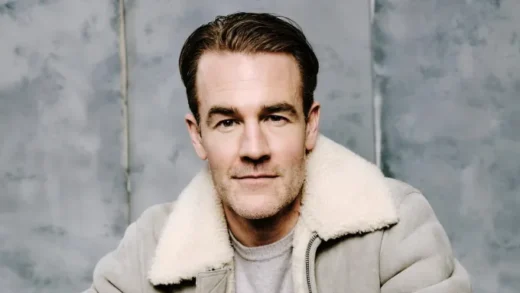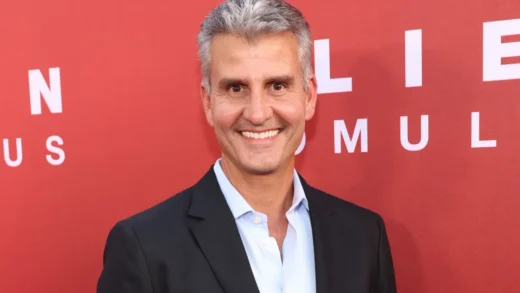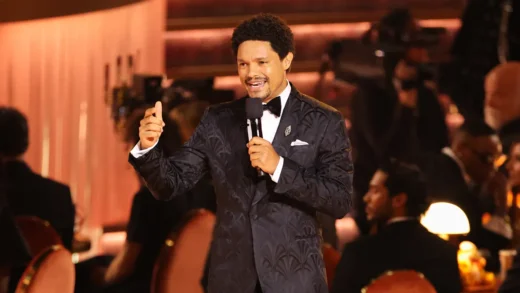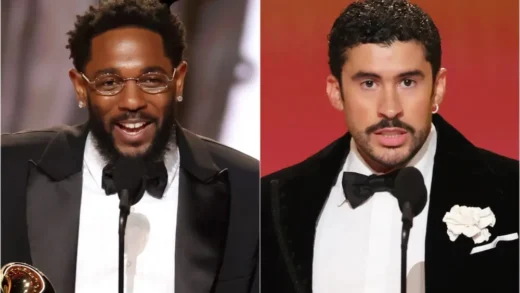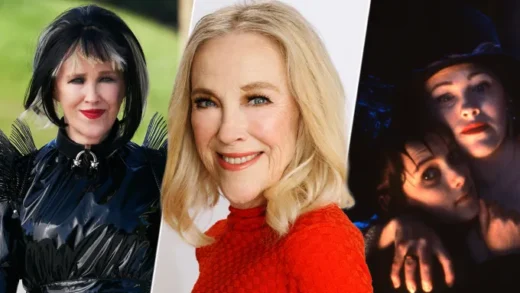Ally Maine is a fictional singer. But she’s pushing for some very real awards above Sunset Boulevard.
The singer from “A Star Is Born,” as played by Lady Gaga, is on a massive billboard in front of the Chateau Marmont. It’s the exact spot where a similar advertisement appeared in the film.
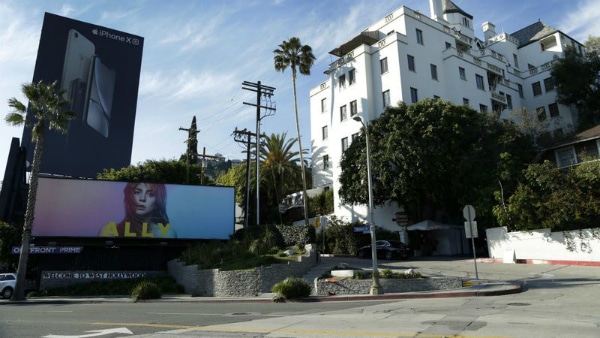
The singer from “A Star Is Born,” as played by Lady Gaga, is on a massive billboard in front of the
Chateau Marmont. Songs from the film are nominated for a Grammy Award. (Kirk McKoy / Los Angeles Times)
Those who know the movie’s breakthrough soundtrack single, “Shallow,” will have the song stuck in their heads when they round Crescent Heights Boulevard. And if you’re a voter for the Grammy Awards, which air live from the Staples Center at 5 pm. on Sunday on CBS, you may also remember “Shallow’s” nominations for song and record of the year, which could be the first tune from a soundtrack to win one of the top Grammy prizes in two decades.
But “Shallow” is not all that the Grammys and the Oscars have in common this year.
Increasingly, those in the music industry are opting for Oscar-inspired marketing campaigns — those award season advertisements championing a work “for your consideration” — in the hopes of snaring a nomination and bringing home a trophy.
Though Grammy campaigning is nowhere yet near the level of the Academy Awards — having a few Oscar-screener DVDs on your coffee table is a status symbol in L.A. — at a time when a big social media event can lead to a serious uptick in streaming numbers, a Grammy can be more important than ever.
For most of its existence, Grammy lobbying was a cryptic process. That was by design, as the Recording Academy keeps its voters and process under tight wraps.
The Recording Academy does not publicize its membership or detail its process for defining and selecting genres and nominees. For years, it discouraged the most blatant public-facing, “for your consideration”-style Grammy campaign ads.
But the academy, say artist managers and those in the industry, has been loosening those restrictions. A Grammy spokesperson declined to say when and how, exactly, it opted to tweak its policies, but academy executives also admitted that its rules around marketing had long been too conservative.
There are still boundaries around what campaigns can say.
That means it’s still relatively difficult to micro-target Grammy voters. Portnow said that a “for your consideration”-style ad “doesn’t involve any direct approach to any individual voters, and there really is no way to get to our voting population directly, and that’s by design.”
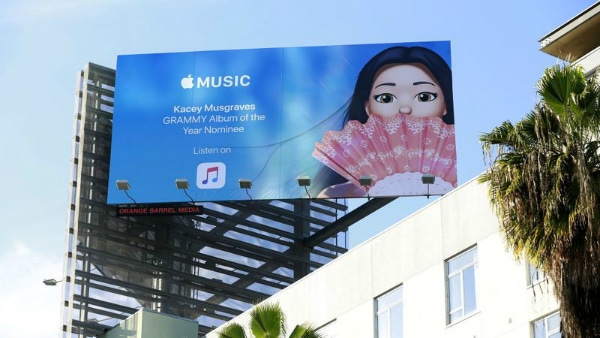
An Apple ad touts not only Kacey Musgraves’ Grammy nods but also the company’s streaming service.
(Kirk McKoy / Los Angeles Times)
But if you’ve driven Sunset Boulevard at any time in the last few weeks, it’s hard to escape the deluge of billboards keeping artists in voters’ minds. Nipsey Hussle, Shawn Mendes, H.E.R., Travis Scott and Ariana Grande all have prominent advertisements at some of the biggest intersections for creative types in the city.
For veteran music execs reared on the old ways of influencing voters, the Grammys relaxing on awards advertising is an overdue change.
(Excerpt) Read More at: LATimes.com
